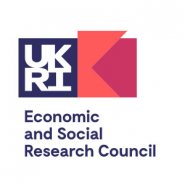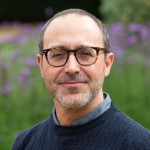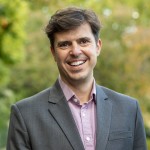
Showering smartly – Market acceptance of sustainability-led technology to reduce water, energy, carbon emissions and cost savings in tourism accommodations
Start date
December 2020End date
May 2021Project website
ViewOverview
Do you ever wonder how much water you use in a shower? Some say a power shower can use as almost as much water as a bath!
At a time where energy efficiency and sustainability have never been more important in hospitality and tourism, this project, the research for which formed part of Dr Pablo Pereira-Doel's PhD, explores whether persuasive communication encourages hotel guests to behave more responsibly during their stay by reducing their shower usage.
Through a partnership with Aguardio ApS, the University of Surrey installed 276 smart water devices in 7 tourism accommodations in Denmark, Spain, UK and US, to develop three randomised covert field experiments to test the effectiveness of the device alongside different persuasive messages.
The 'Aguardio' pilot technology consisted of a sensor -- able to unobtrusively detect shower use and measuring movement, sound, humidity and temperature -- and a timer display that is visible to the guest. Covert experiments took place in different hotel and hostel locations over a twelve-month period in 2019-2020.
IAA funding is now helping to test market acceptance of the product, with the intention that the device creates lasting impact on the hospitality sector. Tests showed that up to 13 litres of water per shower could be saved which translates as 60-90 euros saving per room per year!
Team
Researchers

Principal Investigator
Professor Xavier Font
Professor of Sustainability Marketing
Biography
I research and consult on topics related to sustainable tourism production and consumption. In the past I published widely about sustainable tourism certification, and more recently I've broadened to research on sustainability marketing and communication, and the use of sustainability evidence to inform policy.
I am working on project seeking to transform tourism industry's emissions measurement and carbon trading with crypto-based systems. Partnering with Therme Group, a global organisation focused on urban wellbeing destinations, a team of researchers from Surrey's Institute for Sustainability, the Academy of Blockchain and Metaverse Applications, and the Centre for Sustainability and Wellbeing in the Visitor Economy are working to develop new digital platforms that significantly enhance the tourism industry's ability to measure and reduce its carbon footprint.
I serve as advisor in the Travalyst coalition of Amadeus, Booking, Google, Expedia, Skyscanner, Travelport, Trip, TripAdvisor and Visa, where I use my research experience to inform efforts to align sustainability frameworks for the supply chain of the tourism industry, that can be persuasively communicated to nudge consumers.
I have conducted over 200 courses for more than 5,000 businesses on how to market and communicate sustainability. Recently, I was the Principal Investigator for the University of Surrey for the €24.5 million Interreg project Experience to develop low season sustainable tourism visitor experiences.
A substantial part of my time is spent in PhD supervision: I currently supervise five students, I've already supervised 29 to completion, and examined over 30.
I am the Editor in Chief of the Journal of Sustainable Tourism.

Dr Pablo Pereira Doel
Human Insight Lab co-director; Fellow at the Institute for Sustainability; Visiting Fellow, Center for Tourism Research at Wakayama University (Japan)
Biography
I am co-director of the Human Insight Lab at Surrey Business School and a Fellow of the Institute for Sustainability at the University of Surrey. My research examines how everyday resource-use behaviours, particularly water use, can be understood, measured, and redesigned to support environmental sustainability. Drawing on behavioural science, environmental psychology, data analytics, and design research, I study the structural and contextual drivers of behaviour using sensor technology and biometric methods (eye-tracking, galvanic skin response, facial-expression analysis) in laboratory, field, and hybrid experiments across real-world settings such as homes, student accommodation, hotels, healthcare facilities, and product-use contexts. Much of my work is co-created with industry and policy partners to translate evidence into practical, measurable impact. I aim to make sustainable behaviour intuitive and rewarding, showing how context redesign and digital innovation can change what people feel and do.
Outputs
Impact
Based on the findings of previous research experiments, the ESRC IAA funding will allow the team to partner with Aguardio to facilitate business engagement within the hospitality industry, to help validate the technology's ease of installation, reliability, robustness and the benefits to businesses and positive environmental impacts.
Through the new Aguardio device, access to shower behaviour data will be unobtrusively obtained, allowing a better understanding of human behaviour and allowing a better understanding of behavioural interventions around environmental change.
We anticipate environmental annual savings of approximately 110,000 m3 of water, 4,230 MWh and 420 tonnes of CO2 per year. The financial annual savings will be approximately €90 per Aguardio device (per hotel room) and per year, resulting from both water and energy savings.
This will also enhance the role of Surrey as an essential partner in the development and market accessibility of a state-of-the-art technology that can bring financial benefits to businesses and positive environmental impacts.
Accessibility to regular big data derived from real behaviour will also open future research opportunities, allowing the impact from this IAA project to travel full circle.
Impact Acceleration Account awarded projects
Our projects are all playing their part in turning social science research outcomes into meaningful impact that will touch our lives and communities.
Research groups and centres
We have a world-class reputation for our research in hospitality, tourism, transport and events.
SCHOOL OF HOSPITALITY AND TOURISM MANAGEMENT CENTRE FOR DIGITAL TRANSFORMATION IN THE VISITOR ECONOMY